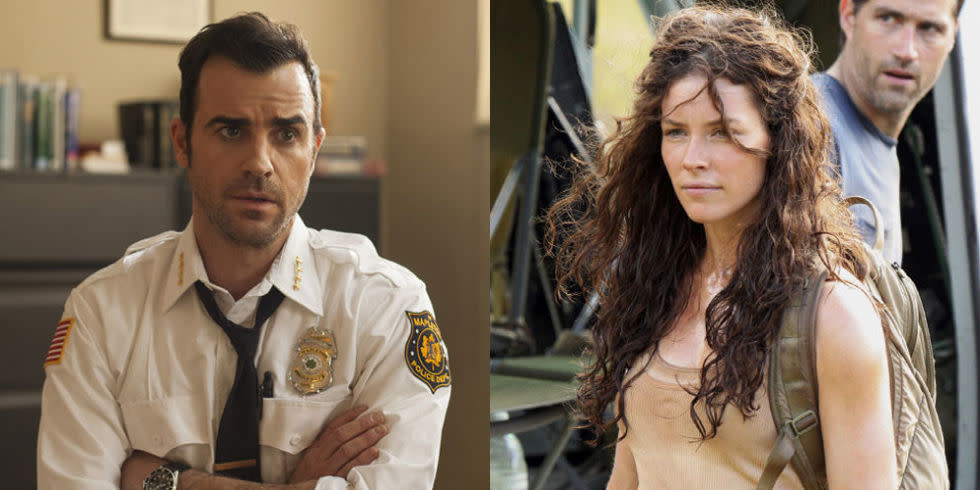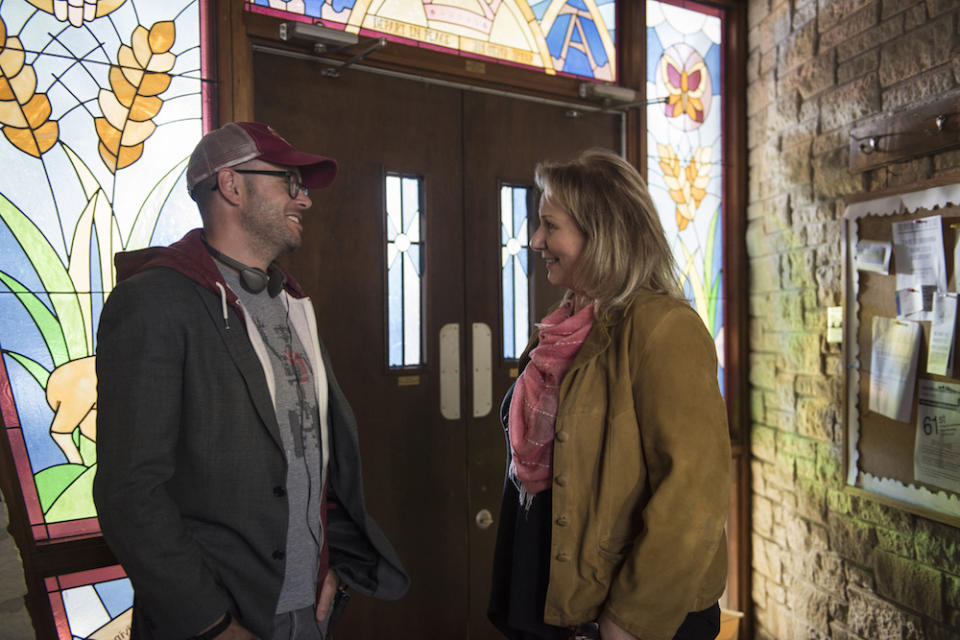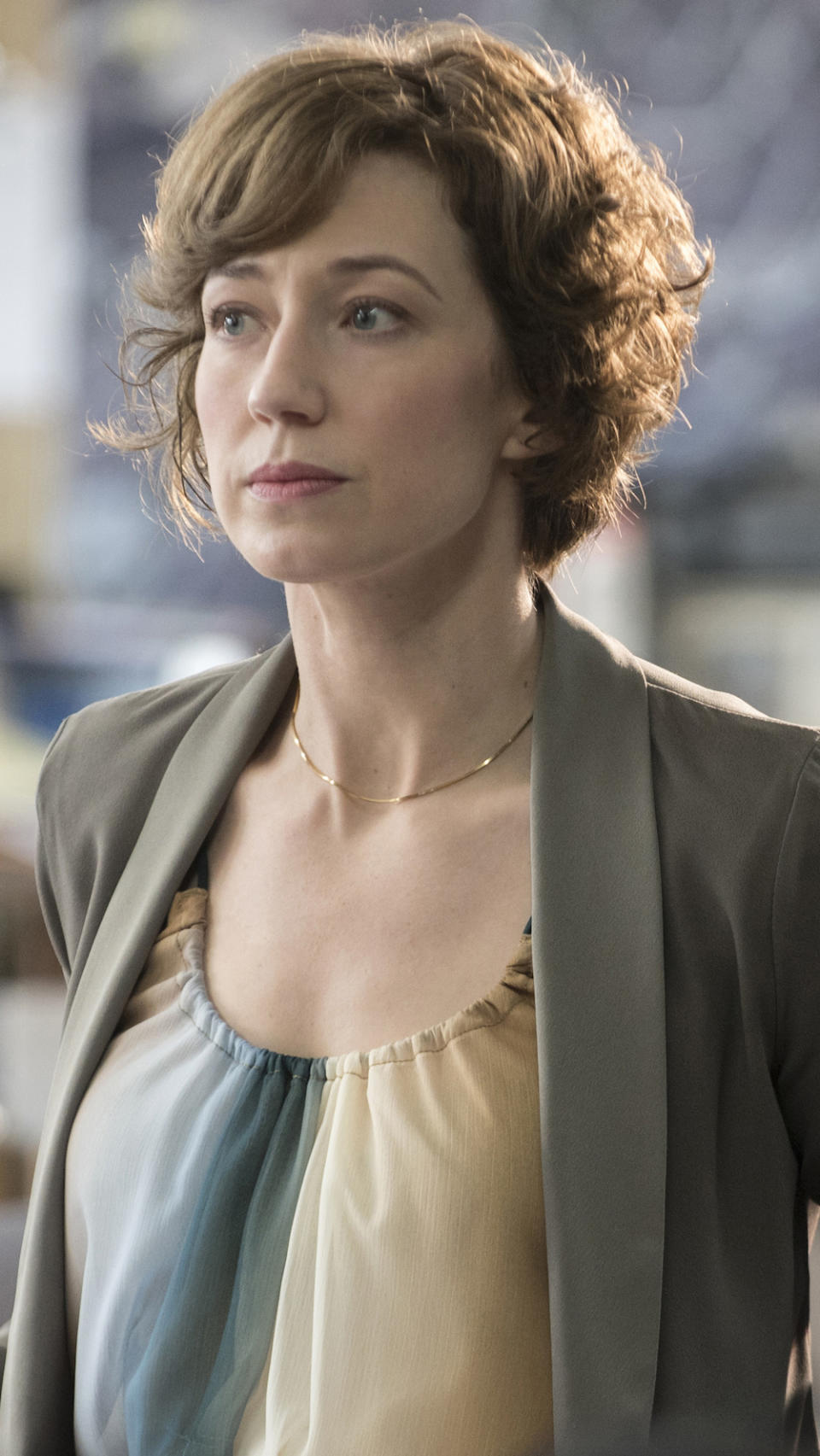Why Binge Watching TV Is Bad, According to the Man Whose Show Practically Invented It

Damon Lindelof doesn't know how binge-watching as we know it today (as in, "I just watched like all of Stranger Things this weekend!") originated. But he places it around the conclusion of Breaking Bad in 2013, when fans binged the entire series in preparation for the finale. "That's the first time I remember hearing that word associated with television viewing," Lindelof says. "I'm sure it was out there beforehand, but that's when it felt like it popped into the zeitgeist."
It might be possible to place those origins back a little bit further before Netflix streaming to Lindelof's own show, Lost. Having run from 2004 to 2010, Lost arrived during a pivotal time in TV's evolution when audiences could watch at their own speed as technology transitioned from the DVD to the DVR and then to streaming. He even admits that the predecessor to bingeing Breaking Bad was "I caught up on Lost." If any show demanded extended viewing during that time, it was Lost-a show in which each episode ended with a cliffhanger that basically forced you to play the next one. It also was a show that required serial viewing-no one's going to start Season Three having no idea what the hell the hatch and the smoke monster were all about.
TV viewing as an experience has changed drastically in the few years since. Networks that were once powerhouses for prestige television are struggling to find hits, services that were once novelty luxuries are now releasing Academy and Emmy Award-winning content, and entire seasons are dumped at once on a Friday morning.
During those years of transition, Lindelof's latest project The Leftovers has existed quietly as a worthy successor to his previous hit series. It's not a binge-worthy powerhouse-I dare you to watch more than three episodes without becoming clinically depressed-and it doesn't carry the fan fervor, or weekly viewing numbers, as Lost did. But, like Lost, it's a dense and elegant apocalyptic drama, rife with lush, metaphor-heavy writing and cinema-quality filming and production.
I hope that people say, 'Oh, I wish there had been more Leftovers. I would rather be on the side of 'they ended the show prematurely' rather than 'God, they went on for too long.'"
The Leftovers returns to HBO for its third and final season on April 16. It's a show that over the course of three seasons has taken some of the biggest risks with television-including Lindelof's decision to end it after three years rather than drag it on for a decade. "Three seasons felt right," he says. "I hope that people say, 'Oh, I wish there had been more Leftovers, because it's a zero-sum game. Either people are saying, 'I wish there was more of that' or 'there was too much of that.' Very rarely do you get to stick the landing to have people say, 'That was just right.' I would rather be on the side of 'they ended the show prematurely' rather than 'God, they went on for too long.'"

But even with all this good TV out there and with so little time, Lindelof encourages audiences to take their time. Don't binge. He admits in an interview with Esquire.com that he does it like everyone else, but maybe it's hurting how you experience these shows.
According to Lindelof, binge watching is kind of like eating an entire pizza.
The pace in which you consume this is up to you, but just because there's an entire pizza in front of you and you can eat it all, doesn't mean that you should. Every time I've ever eaten the entire pizza, I've been filled with shame and regret. But if I stick some in the fridge for later and have it the next morning, I'm like, "I'm really glad that this pizza is still here." Just because you want the next one now doesn't mean that you should give it to yourself. Delayed gratification is a much richer gratification. That episode will be just as good tomorrow as it was five minutes after the episode that you just watched.

Bingeing has also changed the way he writes TV.
You kind of have to design the show as a story that will be consumed at the leisure of the audience in the same that way that a book is. When you buy a book, you can read it all on a single flight from New York to L.A., or you can read a couple chapters and put it down and pick it back up again a couple days later. And you want that book to be just as good for the person who read it in one sitting as the person who took their time with it. We talk all the time [about this]-particularly in terms of how self referential this show is-because if you're bingeing it, and you're like, "Oh, I don't need to go out of my way to remind the audience of what happened in Episode Two because that happened three hours ago for them. But if they're watching it a month later, which is the way that the show would originally air, you have to remind the audience, "Oh, that thing happened." You have to split the difference, I think.
Lost is a completely different show when you binge it.
John and Jack are looking down into that hatch, and then the season's over. You had to wait three months before we were introduced to Desmond, but the audience who's experiencing it now has to wait eight seconds. Anticipation is exciting-there's a reason that we don't have Christmas every day. Christmas Eve is almost more exciting than Christmas in many ways. The downside is that you eliminate the anticipation, but the upside is you eliminate all the stress. The idea of, "I've basically invested six years of my life in this thing and it better pay off." If you've only invested two weeks of your life in the thing, your expectation and your demands on how it's going to resolve itself are going to be much less high.
TV writers are taking risks like never before. Ten years ago, Lindelof couldn't have done with Lost what he did with The Leftovers-like changing the setting with every season.
I think a lot of times television is about comfort. Even in the most dramatic and intense series-like The Sopranos or Breaking Bad, for example-there's a comfort and a safety in being home, driving your car and living on your street, and being in your easy chair in your living room. What Ryan Murphy does on the American Horror Story anthology, or what Sam Esmail has done on Mr. Robot, or what Jill Soloway does on Transparent... It feels like there's so much rule breaking going on, that you have to start saying to yourself there's not a lot of rule breaking going on. There just aren't any rules, really. I don't think I would have been capable of taking risks 15 years ago, because I hadn't been taught how to do it yet.
You Might Also Like

